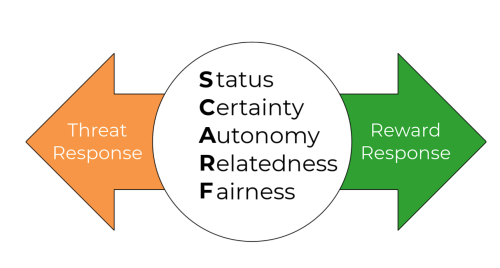
It is widely recognised that an organisation’s leadership plays a crucial role in any successful change management process. Yet with between 50 and 70 per cent of change management projects still failing to achieve success, what should contemporary business leaders be doing differently? Let’s take a look at the latest thinking on this issue.
According to this article, the Boston Consulting Group claims many businesses struggle to “bridge the gap between formulating change programs and successfully executing them.” Senior BCG partner and managing director Perry Keenan suggests companies and leaders “drive change at the individual level…individual change will lead to change throughout the organisation.”
Visible leadership is also crucial, adds Keenan. This includes being accessible to all staff, being prepared to answer questions and also being willing to work closely with the next tier of leadership to ensure their “active involvement in implementing the various change initiatives.” Engaging the extended leadership team can give a change project the strength in numbers it needs to succeed.
Meanwhile, writing in the Harvard Business Review, Assoc Prof Ryan W Quinn and Professor Robert E Quinn suggest the key to change management success lies in more closely aligning leadership development with change management training.
According to Quinn and Quinn, a coordinated approach to leadership development and change management training can equip staff with the skills to challenge workplace culture and bring others on board the change process.
“Change initiatives—which require a deviation from a dominant set of norms and behaviours—are the best learning environments for star managers to develop leadership skills, as well as a necessary component of a successful culture-change initiative.”
Writing for Forbes, business consultant and author Ron Ashkenas argues that, despite the statistics, business leaders are getting better at change management, however he believes leaders may be hampered by ongoing confusion between the terms ‘change management’ and ‘transformation’. While change management focuses on a few, discrete, well-defined shifts, transformation focuses on “a portfolio of initiatives, which are interdependent or intersecting… the overall goal of transformation is not just to execute a defined change — but to reinvent the organisation and discover a new or revised business model based on a vision for the future.”
Ashkenas argues that leaders presiding over successful transformations not only understand change management principles, but have also developed “a broader set of transformational leadership capabilities, such as more flexible and dynamic coordination of resources, stronger collaboration across boundaries, and communication in the midst of uncertainty.”








